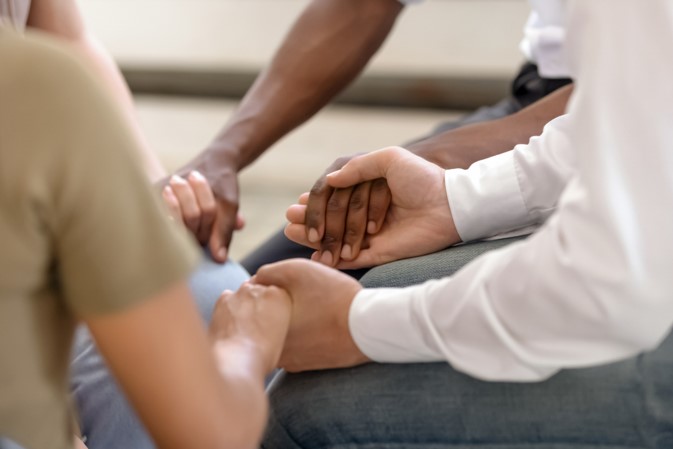Written by Valentina Osorio, OTS
The onset of a chronic disease or diagnosis may come with added stressors and feelings of uncertainty and alienation. Support groups may serve as a bridge between medical treatment and the need for emotional support1. Support groups are a great way to meet and share experiences, knowledge, resources, and coping strategies with other individuals and families who have similar lived experiences1.
Visit the Tourette Association of America to find a local support group in your area.
Getting Involved
Possible Benefits of Participating in a Support Group1:
- Reducing feelings of loneliness, isolation, and distress
- Gaining a sense of empowerment and staying motivated to manage symptoms
- Receiving support from others
- Being able to share thoughts, feelings, fears, experiences, etc. in a safe place
- Forming friendships with other group members
- Learning about available resources and treatment options
A variety of support groups exist. If you are in need of a non-Tourette Syndrome/tics related support group, please consider searching the national organization website corresponding to the type of support group you are looking for.
Tips for Support Group Leaders
Support group leaders can play a vital role in setting the tone of a group. The following tips may be implemented by group leaders to help promote and sustain involvement amongst group members.
- Get the word out about group sessions
- Create flyers, both digital and print copies, with details about group meetings (e.g., focus of the group and who it is designed for, date/time, location, RSVP instructions, etc.)
- Post upcoming meeting dates and events on social media/webpages designated for the target population
- Ensure local healthcare providers serving the target population are aware of the support group and provide them with flyers, a website, social media page, or contact information to share with patients who may benefit from the support group
- Establish consistent meeting dates
- For example, if group members would like to meet on a monthly basis establish a day and time for meetings such as, every second Friday of the month from 5:30 p.m. to 7:30 p.m.
- Ask for feedback from group members and make changes accordingly
- Establish accountability for attending group sessions
- Encourage individuals to RSVP to group sessions
- Provide individuals with duties (e.g., have group members volunteer to help with set up/clean up or volunteer to bring water, snacks, games, activities, etc.)
- Promote a safe environment
- Establish confidentiality amongst entire group and ensure everyone knows they are free to share/not to share what they want
- Ensure that all group members agree to be kind and respectful to others
- Ensure the physical environment is safe for all group members
- Ensure all group members know that they are free to step away to take a break from the group at any point if needed
- Plan and prepare activities for group sessions
- Have multiple options or activities planned if possible
- Be on the lookout for cues that individuals are ready to transition to other activities (e.g., getting off topic, throwing things, getting up and wondering around, no longer actively engaging, increased in tics, etc.)
- If activities are planned for the group, also ensure that there is downtime allotted for group members to just socialize with one another
- Participate in deep breathing exercises as a group
- Practicing relaxation techniques towards the end of sessions, or as needed, may help individuals transition out in a calm state
- May be especially helpful when tics have increased due to increased excitement and/or from seeing other people’s tics
- Belly Breathing is a simple deep breathing exercise that may help individuals to relax
- Encourage group members to stay connected outside of group meetings
References
- Mayo Clinic. Support Groups: Make Connections, Get Help. 29 Aug. 2020, https://www.mayoclinic.org/healthy-lifestyle/stress-management/in-depth/support-groups/art-20044655
- Images utilized from Microsoft PowerPoint 2021



